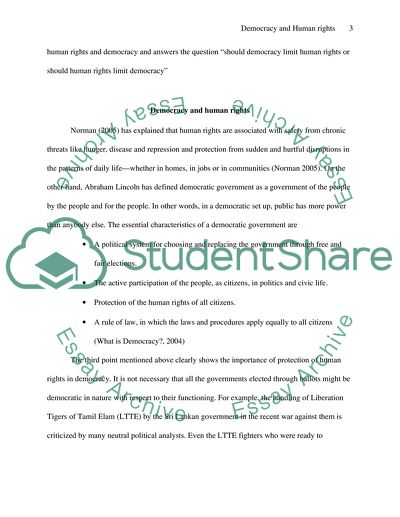Cite this document
(Should Democracy Limit Human Rights or Should Human Rights Limit Democ Literature review, n.d.)
Should Democracy Limit Human Rights or Should Human Rights Limit Democ Literature review. Retrieved from https://studentshare.org/social-science/1738251-should-democracy-limit-human-rights-or-should-human-rights-limit-democracy
Should Democracy Limit Human Rights or Should Human Rights Limit Democ Literature review. Retrieved from https://studentshare.org/social-science/1738251-should-democracy-limit-human-rights-or-should-human-rights-limit-democracy
(Should Democracy Limit Human Rights or Should Human Rights Limit Democ Literature Review)
Should Democracy Limit Human Rights or Should Human Rights Limit Democ Literature Review. https://studentshare.org/social-science/1738251-should-democracy-limit-human-rights-or-should-human-rights-limit-democracy.
Should Democracy Limit Human Rights or Should Human Rights Limit Democ Literature Review. https://studentshare.org/social-science/1738251-should-democracy-limit-human-rights-or-should-human-rights-limit-democracy.
“Should Democracy Limit Human Rights or Should Human Rights Limit Democ Literature Review”, n.d. https://studentshare.org/social-science/1738251-should-democracy-limit-human-rights-or-should-human-rights-limit-democracy.


